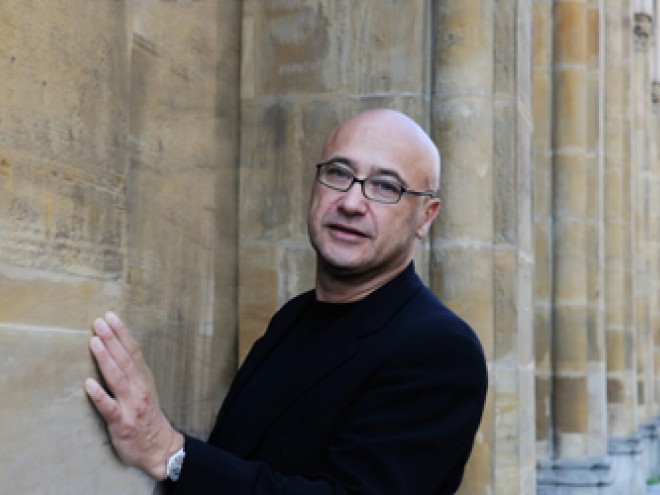Part truth, part fiction, and all emotional reality, this novel puts a new gloss on the history of Europe with a strong imaginative flair that is by turns humorous, scandalous, and tragically sad. It is a debut novel that reads like the work of a deeply experienced writer, one who has had many years to rethink and reshape the chronicle of Jewish life in Europe and imbue it with a richer humanity and a broader spirituality.
Gabi Gleichmann, a native of Budapest born in 1954, grew up in Sweden and turned his studies of literature and philosophy into a career in journalism. His interest in both philosophy and Judaism motivated him to study the history of the Spinoza family, who are at the center of this mesmerizing tale, a tale that begins in the eleventh century. At that time, the family owned a secret manuscript, which was passed down through the generations from father to son. In the precious manuscript was nothing less than the closely guarded secret of immortality.
The story is recounted from the perspective of Ari Spinoza, who tells the tale – from his deathbed – of the thirty-six generations that have handed down this secret over the centuries. Ari, however, has no son to whom to entrust the manuscript, and to preserve his heritage, he creates the narrative we read in this book. It is a useful device, and an effective one. The story takes us on a good long ride through the formative historical events of European history, from medieval Portugal to Spain, to Rembrandt’s Amsterdam and then to the French Revolution, culminating in Freud’s Vienna and the human tragedies of the two World Wars, all the while inserting members of the Spinoza family into the action in a way that humanizes the events and makes the experiences seem like our own.
Throughout the book, the first-person narration is achieved through rich, flowing language that consistently and seemingly effortlessly conjures up images to accompany the reader on the journey through Jewish Europe. This is historical fiction at its best. We learn as we are deeply and thoroughly entertained, because the characters draw us in and share themselves with us openly and honestly. At the same time, we are transported through Ari’s story into the ethereal realm of memory, the only place, Gleichmann intimates, where immortality truly resides.
Linda F. Burghardt is a New York-based journalist and author who has contributed commentary, breaking news, and features to major newspapers across the U.S., in addition to having three non-fiction books published. She writes frequently on Jewish topics and is now serving as Scholar-in-Residence at the Holocaust Memorial & Tolerance Center of Nassau County.





